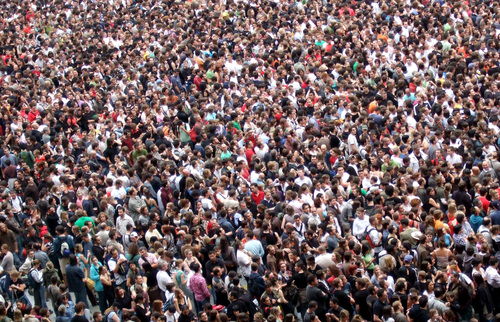LESSON: Extrapolation & Predicted Values
Malthusian Mistake
In 1798, a British economist published a study about world population. Thomas Robert Malthus’s conclusions horrified many people. He compared the growing population against the available resources. Based on his calculations, people were having too many children. He predicted that within a few generations, the world would run out of food. But more than 200 years later, the human race is still going strong. What happened to Malthus’s calculations?
Does the Past Predict the Future?
Malthus used extrapolation to predict how many people would exist in the future, and how much food they’d have. But past data can’t predict future inventions. When Malthus wrote his study, in 1798, farming required a lot of labor. Crops failed frequently, and it was difficult to ship food from one part of the world to another. If technology hadn’t evolved, Malthus’s dark predictions might have become reality. Malthus lived at the very beginning of the Industrial Revolution. He couldn’t begin to imagine the advancements that would later make it possible to feed billions of people with much less effort.
Today, we use machines to plant and harvest crops. We have genetically engineered drought- and blight-resistant seeds. Refrigeration, freeze-drying, and improved canning methods make it possible to ship food to anywhere in the world. In Malthus’s time, famines resulted from bad weather and bad luck. Today, most famines are a consequence of warfare or rule by oppressive dictators who deliberately deny their people food. Meanwhile, population growth has slowed, as countries have become wealthier. People now spend more money on education, wait to have children, and have fewer babies. Malthus’s predictions were good math but poor social science. He couldn’t foresee how technology would change many lives for the better.


